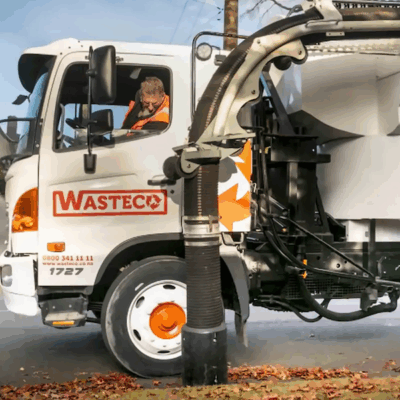Smarter solutions the key to Industry 4.0
Industry 4.0 improvements don’t have to be complex or expensive. The key is to think big, start small and scale fast, says Nathan Stantiall.
Industry 4.0 improvements don’t have to be complex or expensive. The key is to think big, start small and scale fast. Experiment within your production plant or business at a small scale, to build your confidence and to test the business case, says Nathan Stantiall.
Whether they are making medical devices or milk products, New Zealand’s manufacturers have gained a reputation for high-quality short-run manufacturing that the world’s biggest production centres can’t compete with.
Highly customised manufacturing, often in high-value niches, is what we are good at. But the fourth industrial revolution, dubbed Industry 4.0, is enabling our competitors to undertake customised manufacturing at mass production cost. Using a fusion of Industry 4.0 technologies – from robotics and automation to data analytics, mixed reality and the application of artificial intelligence – they stand to beat us at our own game.
We need to embrace these technologies to keep our competitive edge, but also to address low productivity growth in our manufacturing sector. Last year’s Manufacturing Sector Report put productivity growth at just 0.2 per cent per annum over the last ten years, well below the New Zealand average of one per cent, which in itself is low by international comparison.
One of the obstacles to the adoption of Industry 4.0 is that it sounds big and expensive. Indeed, there are plenty of vendors who are more than happy to install fancy technology in your factory or business claiming all sorts of productivity gains.
But the key is not to be seduced by the technology. You need to start with the problem you are trying to solve. The answer may not actually require an expensive technology solution.
Recently, Hamilton-based Gallagher Group, which makes a wide range of animal management, security and fuel systems products, looked into using augmented-reality (AR) headsets as a way to monitor quality in injection-moulded parts made in its manufacturing plant.
AR technology was found to be unsuitable. Instead, Gallagher deployed a much simpler camera-based system which fed images into Microsoft’s Azure cloud computing system, where algorithms analysed the images to deliver quality-related insights.
Similarly, Christchurch electronics maker Tait considered using drones to get an accurate view of stock quantities in its manufacturing facilities. But the real problem turned out to be about production scheduling. Tait analysed the data it was already generating with an algorithm to more effectively schedule production, an exercise that boosted manufacturing productivity by 21 per cent.
Industry 4.0 improvements don’t have to be complex or expensive. The key is to think big, start small and scale fast. Experiment within your production plant or business at a small scale, to build your confidence and to test the business case. For large, high-volume manufacturers, the return on investment for deploying smart new technology is often easier to ascertain than for small and medium-sized short-run manufacturers.
It doesn’t need to be a factory-wide solution from day one either. Auckland electronics contract manufacturer Nautech borrowed a robotic arm from Callaghan Innovation to test its potential for automating the assembly of wiring components on its production line. It proved highly successful and Nautech now has several UR5 robotic arms active in its factories.
Staff who previously assembled wiring systems have been deployed to other parts of the production process where they add more value. Indeed, that is a key aspect of Industry 4.0 – to augment humans’ roles rather than to replace them. Where smart technology does replace humans, it is generally to tackle the “three Ds” – the dumb, dirty and dangerous jobs.
Some companies are harnessing Industry 4.0 methods and technology to create smarter products, others are improving the processes in their plants for greater quality and productivity.
A subset of New Zealand companies has even gotten into the business of enabling Industry 4.0 technology themselves. Auckland-based Facteon started life in 1981 as the engineering division of Fisher & Paykel Healthcare. Now it creates smart manufacturing and industrial Internet of Things (IoT) technology to digitise factories all over the world. Framecad and Tomra are other companies who are exporting similar systems and expertise.
Every company’s path to Industry 4.0 will be slightly different, which is why the Government is investing $6.8 million over the next four years to create an Industry 4.0 Demonstration Network. It will allow our manufacturers to experience Industry 4.0 technologies in a real factory environment and learn from those who have gone through the adoption process and have improved their productivity and global competitiveness as a result.
Part of the investment will further develop Skills Shift, an initiative of the Manufacturers’ Network that looks at the training and up-skilling required to equip manufacturing employees to best take advantage of Industry 4.0 technologies.
The opportunity now is to experiment with these tools and methods, to learn from each other and to deploy the technology that can help our us stay internationally competitive while boosting our productivity.
Nathan Stantiall (pictured) is Group Manager Programmes at Callaghan Innovation.
Email [email protected]






